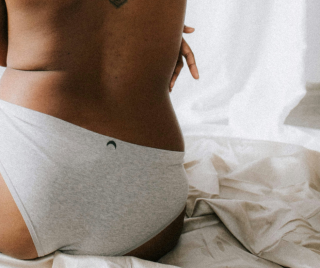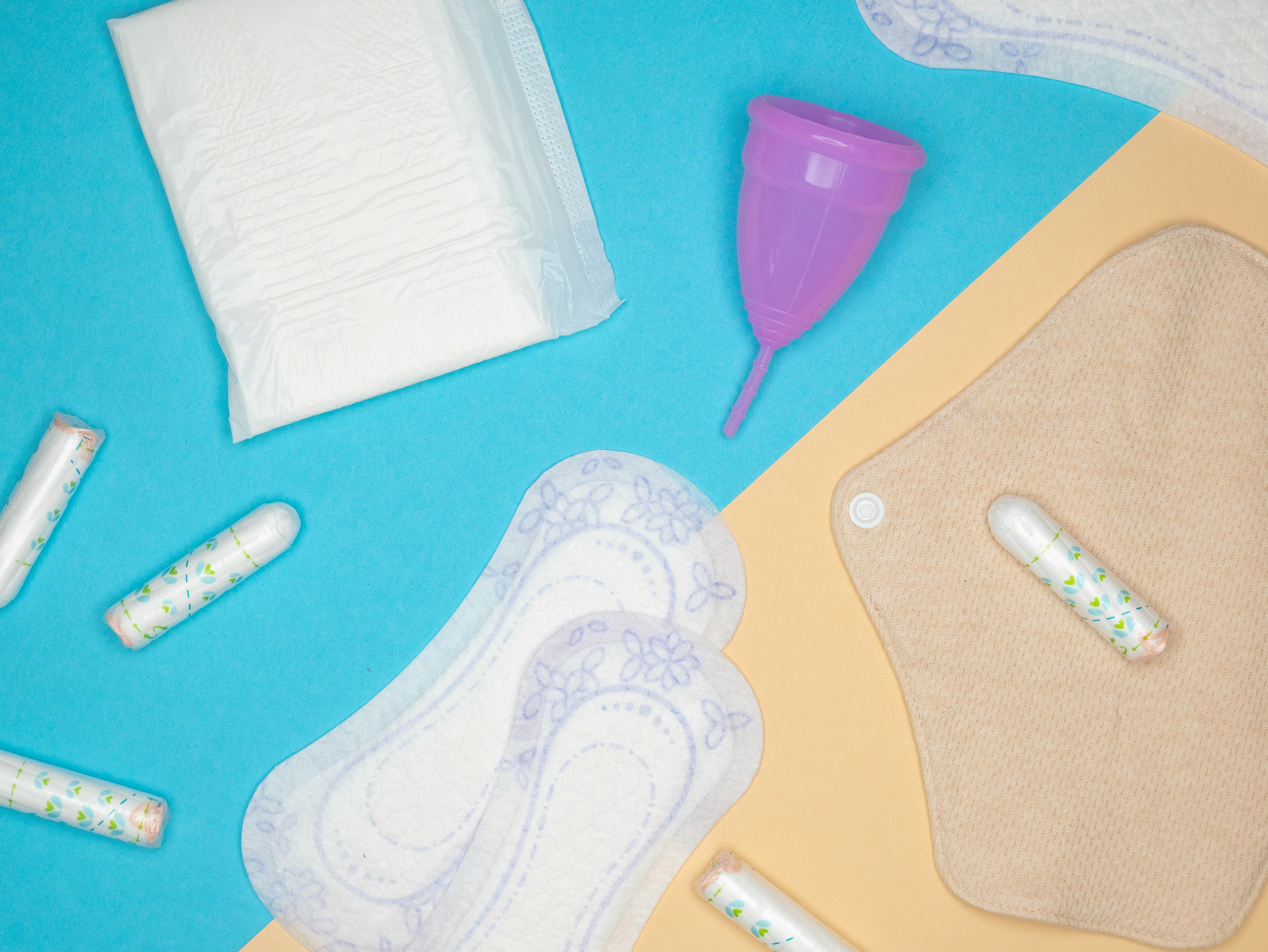
Disabled or not, menstruation (an extremely difficult word to pronounce that basically means periods) will come to most of us. The age you start and how long the periods last can differ, but there’s plenty of information out there to tell you everything you need to know.
All about periods
Periods can last between 3 and 7 days, and happen monthly when your body needs to get rid of the lining of the womb for a fresh lining to develop
It’s important to note that having a period is not just for women and that people of all genders may menstruate. This can include transgender men and non-binary people. For this reason, we will be using gender-inclusive language in this resource. This resource has been updated in 2024 to reflect a more inclusive language.
What is a period cycle?
A menstrual cycle means the time from the first day of one period to the first day of your next period. When you first start bleeding, these cycles can be unreliable, and the number of days in them can change, but this often stabilises as time goes on.
Cycles can be anything from 21 days to 45 days, depending on your age and how long you’ve been getting periods. The good thing about the cycles, though, is that once stabilised, they can help you become in tune with your body, so much so that you may be able to tell when you’re going to have a mood swing, period pains or feel loved up!
- The average age for a person to get their period is 12, although periods can start between the ages of 8 and 16. If your period hasn’t started by the age of 16, it’s recommended you pop in to see your doctor.
- Periods can be light, medium or heavy. This is called the menstrual flow, and the amount of blood you lose can make you feel faint. If you’re struggling with the flow of your period, or it is causing you pain, medication is available. Have a chat with your GP.
- People who menstruate usually have periods until menopause. Menopause occurs between the ages of 45 and 55, usually around age 50. However, for some people, this can happen sooner than that. Most people experience symptoms of menopause from aching joints and irregular cycles to night sweats during the peri-menopause stage. This is when your body is preparing for menopause to start.
- Menopause means that a person is no longer ovulating (producing eggs) or having periods and can no longer get pregnant. Like menstruation, menopause can vary between people and these changes may occur over several years.
- Trans people who go through a natal ostrogen-based puberty may experience their first period between 9 to 14. Some people who use hormone blockers may not ever experience a period.
Pads, Tampons or Menstrual Cups
One of the most embarrassing things people often find about periods is that there is a chance of blood leaking through your clothes if you don’t wear the right menstrual product.
There are so many options out there that you are sure to find the best option for you.
Sanitary Towels (or Pads)
Pads, like periods, come in all sorts of sizes so that you can choose the right one for the flow of your period. By sticking them to the inside of your underwear, the pads then absorb the blood that leaves your body (like a towel), and keep you dry and leak-free. There are panty liners, for when you’ve just started and your periods are very light, and there are also nighttime pads for people with really heavy periods.
Pads are often a good way to start when you begin your periods, as you don’t have to do anything other than stick them onto your underwear! Pads can sometimes leak if your flow is really heavy, so make sure to change them regularly
If you’re planning on going swimming pads won’t work so you’ll need to try a tampon. Choose unscented pads & tampons, as perfumes can irritate the sensitive skin of your vulva.
You can also find fabric, reusable pads that are easily popped into the washing machine. These are a great alternative to the disposable version if you are worried about the environmental impact or struggling with the scent or texture.
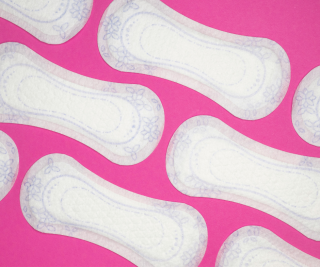
Tampons
Tampons work to absorb blood, just like pads, but they do this from the inside of your body and are pushed into your vagina to effectively ‘block’ any blood from leaving the body. Tampons can either come with applicators (plastic tubes you push together to help get the tampon into position), or you can just push the tampon up with your finger. Like pads, tampons come prepared for light, regular and super heavy periods, and there are many different brands you can buy. Because they are pushed inside you, tampons can be difficult to use for people who have just started their periods, as the vaginal muscles are tight. These must be relaxed before inserting a tampon so keep calm. It shouldn’t be a painful experience.
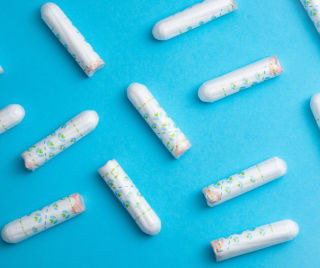
Menstrual cups
A menstrual cup works a bit like a tampon as they are pushed into the vagina to catch the blood. It’s a small flexible cup usually made from silicone so you can reuse it rather than throwing it away which is good for the environment.
If you are considering a menstrual cup you must buy the right size for you. Smaller cups are usually better for teenagers. Make sure you wash your hands before putting the cup in or taking it out. To insert the cup you tightly fold it in half, holding it with one hand with the rim facing upwards. You then insert it like you would a tampon without an applicator.
Once in, all you need to do is twist it and it should spring open. If you have it in place properly you shouldn’t be able to feel it. Just like tampons, it may take a bit of practice to get it right.
To take it out all you do is squeeze the bottom of the cup to break the seal and pull it out. It’s important that you empty your cup and then wash it properly before using it again. To wash a moon cup, run it under water for a few minutes in between uses. It must be occasionally deep cleaned too by boiling, using soap or disinfectant. Store it when it is completely dry to avoid mould.
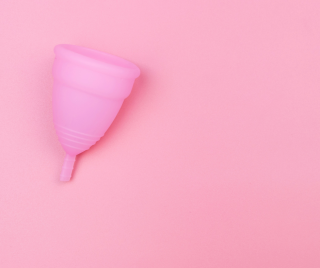
Period underwear
Period underwear consists of an absorbent layer, another leak-resistant layer, and then the external underwear fabric. These are often one of the most comfortable forms of period hygiene. They can be easily popped into the wash and reused. This may be a good product to consider if someone is disabled or neurodivergent. Many neurodivergent people struggle with the textures associated with periods and remembering to change sanitary products.
Not to mention they come in lots of different colours and patterns.
Period Hygiene
Whether you choose pads, tampons or a menstrual cup…
Remember to change pads and tampons every 4 to 8 hours to ensure that they don’t leak and, most importantly, that your body stays healthy.
A menstrual cup can be used for up to 12 hours depending on your flow. If you use tampons or a menstrual cup, you are at risk of Toxic Shock Syndrome, or TSS. TSS is a rare but sometimes deadly disease. TSS is caused by bacteria that can produce toxins. If your body can’t fight the toxins, your immune (body defence) system reacts and causes the symptoms of TSS:
- Sudden high fever
- Muscle aches
- Diarrhoea
- Vomiting
- Dizziness
- Fainting
- Rashes
- Sore throat
- Bloodshot eyes
It’s not something to worry about, but definitely something to be aware of.
Disability and period health
If you are disabled: Think about whether pads, tampons or a menstrual cup will be the best method for you. If you have limited dexterity in your hands, it might be easier to simply stick the pads onto your underwear. Alternatively, if you are a wheelchair user and sit down a lot, pads might be unreliable and leak, so tampons or a menstrual cup might be for you. If you are sitting or have poor dexterity, then perhaps period underwear may be a better fit for you.
Some of the issues that disabled people may face with menstruation:
- Not being able to find an accessible toilet or sink in order to change hygiene products or clean moon cups.
- Cost: Period poverty is a huge problem and one that disabled people are more at risk of. It refers to not being able to afford to buy period care products or access facilities such as bathrooms or water. Disabled people have higher costs associated with pain management, mobility, therapy or surgeries. Managing these costs on lower incomes can mean affording products like these are extra difficult.
- Lack of education around disability and period care: When people do receive education about menstruation, it is often not written for disabled people. Menstrual education for disabled people may be difficult to understand or access. It could be because of a lack of sign language interpreters for D/deaf or hard of hearing people, or no audio descriptions or information for visually impaired people.
- Uneducated carers: For example, someone may rely on family members who have not been educated about period care or hygiene. The subject may also cause guardians or carers to feel embarrassed or avoidant.
- Tampons or menstrual cups need to be inserted using fingers which may not be possible for some disabled people.
- People using catheters may struggle with using certain products that do not absorb catheter leaks
- People who experience migraines, seizures, and/or symptoms of epilepsy or Ehlers Danlos syndrome may find they increase during menstruation.
Learn more about Ehlers Danlos Syndrome by visiting this NHS page
Learn more about Epilepsy by visiting this NHS page
Neurodiversity and period health
If you are neurodivergent: Many neurodivergent people may struggle with remembering to change items like tampons, pads or moon cups. This may make period underwear the better choice. Alternatively, many others may choose to set app reminders on their phone which can help someone remember when it is time to change their sanitary product.
Some ways that neurodivergent people may struggle with menstruating:
- Neurodivergent people may struggle with reading lots of information on menstruation or may not understand lots of verbal information from doctors. It’s okay to ask someone to repeat themselves or to summarise information so it’s easier to understand.
- Some autistic people may find a lack of detailed clear information about menstruation confusing including slang terms or euphemisms.
- Neurodivergent people can find changes to routines difficult such as increasing trips to the toilet, period products or the body uncertainty around each period.
- Some neurodivergent people may struggle with the smell of hygiene products such as the strong scent used on pads. You can purchase fragrant free versions or fabric ones to avoid this.
- Intense emotions and elevated levels of stress can lead to increased meltdowns.
- Difficulties accurately communicating changes to emotional or physical health. A lack of being able to communicate easily may also lead to meltdowns or shutdowns.
What might help?
- Apps: There are lots of period tracking apps that can help you to create reminders, diaries and recognise when something is wrong. They can even give you a notification that your period may be due! These can be really helpful for neurodivergent people. For anyone who experiences migraines or has epilepsy, tracking your cycle means you can be more aware of when they are likely to increase.
- Creating a period bag: This bag would have everything you need in it and could be kept in a backpack or locker. It would be helpful to have sanitary products, painkillers or spare underwear in case of emergencies.
- Trying different types of period care: If you have a sensory difficulty with pads or tampons – switch! There is no one product that suits all people so it’s okay to switch or use different products at different stages of your cycle.
- New products: Some brands are investing time and money into developing period products that are designed with disabled people in mind. This includes innovative tabs on moon cups that can help the product to be removed more comfortably or period pants with clasps at the side where they can be taken off easily. It is worth keeping an eye on what is out there!
Why might some trans or non-binary people be uncomfortable with menstruating?
Everyone is different but for some trans people, menstruation may remind them of previous uncomfortable gendered experiences or increase their sense of dysphoria. Equally, others may not have a problem with menstruation.
This doesn’t just affect trans/non-binary people as many women may also feel uncomfortable with their periods for different reasons. It’s okay to feel this way and important that you get extra support if you need it or speak to your doctor if you feel something is wrong.
Extra support
Feel free to contact us at The Love Lounge
Show your support by following us by clicking this link to go to our Instagram @undressingdisability
About us
‘Undressing Disability’ is a global campaign which aims to raise standards in sexual health and sexual awareness for disabled people. Issues around sexuality and sexual frustration are frequently raised by disabled people who feel that they have less opportunity and ability to explore their sexuality than others. Through a lack of understanding, education and a general lack of services, disabled people frequently cannot access the support that would make it possible for them to make the sorts of choices about their lifestyles that most of us take for granted.
As part of our campaign, we run the Love Lounge, an online forum providing free advice on all things sex, love and disability. We also have free resources. As a user-led charity, we aim to change the way people view disability, which often involves removing the ‘fear factor’ that so often surrounds the subject. We support businesses to be more inclusive by providing disability awareness training, British Sign Language workshops and accessibility audits, amongst other things.
Want to read more about disability, neurodiversity and sexual health?
Here are some resources you may like:
Click on this link to visit our page on sexually transmitted diseases
Click on this link to visit our page on how to clean sex toys

